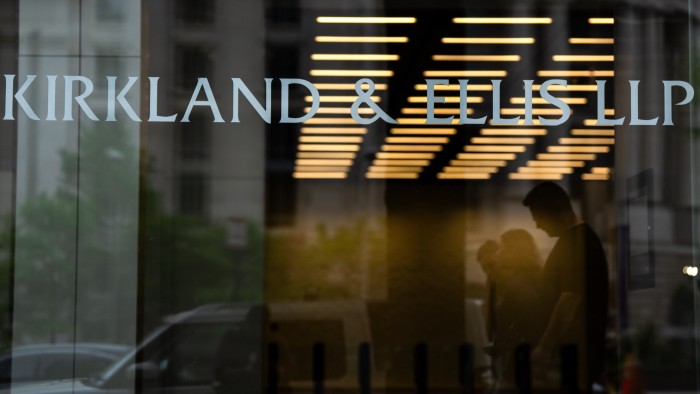Share this @internewscast.com
Kirkland & Ellis, a leading law firm, is taking steps to refine its lawyers’ communication skills in an effort to shake off a reputation for being uncooperative during negotiations between its private equity clients and their investors.
This initiative comes in response to frustration aired by investors in private capital funds, known as limited partners, during an industry gathering last year.
At this event in New York, organizers asked limited partners what they would wish for if they had a “magic wand” to change one thing about private equity groups. The feedback was clear, with “Fire K&E” prominently featured in a word cloud, according to several attendees.
As the global buyout industry faces mounting fundraising challenges, the relationship between private capital entities, many represented by Kirkland & Ellis, and their investors is becoming increasingly crucial.
Kirkland & Ellis, the world’s largest law firm by revenue, plays a significant role in representing private equity groups in negotiations involving terms with major investors, including pension funds.
Gripes among investors have centred on two main issues. One was Kirkland’s refusal to negotiate on even minor fund terms, according to limited partners and two former Kirkland lawyers.
One person said buyout firms represented by Kirkland had claimed in some cases that they did not know the law firm was refusing to negotiate on investment terms.
An in-house lawyer at one institutional investor said they had not put money into two private capital funds because of Kirkland’s refusal to negotiate clauses governing gross negligence and international sanctions.
The in-house lawyer said that since those incidents their organisation had discussed internally that it might not go ahead with investments if Kirkland was on the deal, adding that they did not believe fund managers had instructed the law firm to refuse to negotiate.
The second issue related to Kirkland’s communication style. According to the people familiar with the matter, the firm’s lawyers gave little explanation as to why they were rejecting changes suggested by the other side and often used a stock phrase: “We respectfully decline.”
When Kirkland held training this year for its global funds team on improving their tone in negotiations, it “banned” the term, one of the people said.
Top Kirkland partners who heard about the event where “Fire K&E” appeared on a word cloud thought that the organiser, the Institutional Limited Partners Association (ILPA), was discouraging private equity groups from working with them, the people said. This triggered tension between the two organisations, they added.
The Chicago-founded firm has since set out to reset relations with fund investors. In October 2024 the firm invited in-house counsel from ILPA and two major Texan pension funds to a gathering of its top partners in Austin, according to people familiar with the matter.
This summer the law firm hired Greg Durst, a senior managing director from ILPA, as “senior director of global fund partnerships” in a move that people familiar with the matter said was aimed at smoothing relations. Kirkland said at the time that the hire would “strengthen the firm’s relationships” with fund investors.
Some investors suggested Kirkland naturally attracted frustration as the most active legal adviser on private capital fundraisings.
The firm’s funds team was no more aggressive than those at other firms, said one in-house counsel at a large US pension plan, noting that they had some “great” experiences with Kirkland lawyers.
“Our firm values the relationships we have built within the funds industry,” said Kirkland. “We continue to evolve our business, collaborate with our counterparts, and provide strong support for our clients . . . as market dynamics shift in the fund formation process.”
ILPA declined to comment.









